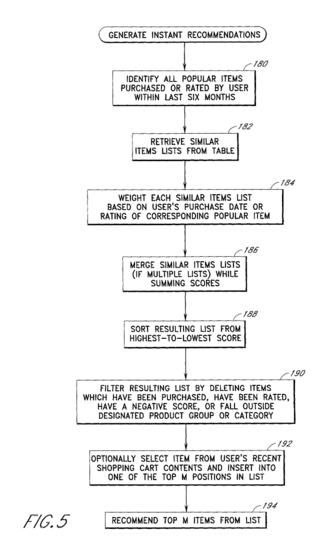
The Los Angeles Police Department (LAPD), officially known as the City of Los Angeles Police Department, is the primary law enforcement agency of Los Angeles, California, United States. With 8,832 officers and 3,000 civilian staff, it is the third-largest municipal police department in the United States, after the New York City Police Department and the Chicago Police Department.
Machine learning (ML) is a field of study in artificial intelligence concerned with the development and study of statistical algorithms that can learn from data and generalize to unseen data, and thus perform tasks without explicit instructions. Recently, artificial neural networks have been able to surpass many previous approaches in performance.

The Los Angeles Police Department (LAPD), the primary law enforcement agency of Los Angeles, California, United States, maintains and uses a variety of resources that allow its officers to effectively perform their duties. The LAPD's organization is complex with the department divided into bureaus and offices that oversee functions and manage specialized units. The LAPD's resources include the department's divisions, transportation, communications, and technology.

Pre-crime is the idea that the occurrence of a crime can be anticipated before it happens. The term was coined by science fiction author Philip K. Dick, and is increasingly used in academic literature to describe and criticise the tendency in criminal justice systems to focus on crimes not yet committed. Precrime intervenes to punish, disrupt, incapacitate or restrict those deemed to embody future crime threats. The term precrime embodies a temporal paradox, suggesting both that a crime has not yet occurred and that it is a foregone conclusion.

Metropolitan Division, commonly referred to as Metro Division or just Metro, is an elite division of the Los Angeles Police Department (LAPD) under its Special Operations Group. Metropolitan Division is responsible for managing the LAPD's specialized crime suppression, K-9, mounted, and SWAT units, named "platoons".

Charles Lloyd Beck is a retired police officer, formerly serving as the Chief of the Los Angeles Police Department (LAPD) and subsequently as the Superintendent of the Chicago Police Department. A veteran of the department with over four decades as an officer, he is known for commanding and rehabilitating the Rampart Division after the Rampart scandal; and for technology enhancements during his time as Chief of Detectives. He agreed to be interim Superintendent of Police in Chicago in late 2019 while the city searches nationwide for a replacement for retiring Eddie Johnson. Beck took the helm of the Chicago Police Department on December 2, 2019 after Johnson was fired. On April 15, 2020, Beck stepped down and was replaced by former Dallas Police Department Chief David Brown, who had been nominated by Lightfoot to serve as permanent Superintendent. After his retirement he rejoined the Reserve Corps as a Reserve Police Officer and is assigned to the Office Of The Chief Of Police.

The Domain Awareness System is the largest digital surveillance system in the world as part of the Lower Manhattan Security Initiative in partnership between the New York Police Department and Microsoft to monitor New York City. It allows the NYPD to track surveillance targets and gain detailed information about them, and is overseen by the counterterrorism bureau.
In the United States, the practice of predictive policing has been implemented by police departments in several states such as California, Washington, South Carolina, Alabama, Arizona, Tennessee, New York, and Illinois. Predictive policing refers to the usage of mathematical, predictive analytics, and other analytical techniques in law enforcement to identify potential criminal activity. Predictive policing methods fall into four general categories: methods for predicting crimes, methods for predicting offenders, methods for predicting perpetrators' identities, and methods for predicting victims of crime.

Smart cities seek to implement information and communication technologies (ICT) to improve the efficiency and sustainability of urban spaces while reducing costs and resource consumption. In the context of surveillance, smart cities monitor citizens through strategically placed sensors around the urban landscape, which collect data regarding many different factors of urban living. From these sensors, data is transmitted, aggregated, and analyzed by governments and other local authorities to extrapolate information about the challenges the city faces in sectors such as crime prevention, traffic management, energy use and waste reduction. This serves to facilitate better urban planning and allows governments to tailor their services to the local population.

Ruha Benjamin is a sociologist and a professor in the Department of African American Studies at Princeton University. The primary focus of her work is the relationship between innovation and equity, particularly focusing on the intersection of race, justice and technology. Benjamin is the author of numerous publications, including the books People's Science: Bodies and Rights on the Stem Cell Frontier (2013), Race After Technology: Abolitionist Tools for the New Jim Code (2019) and Viral Justice: How We Grow the World We Want (2022).

Algorithmic bias describes systematic and repeatable errors in a computer system that create "unfair" outcomes, such as "privileging" one category over another in ways different from the intended function of the algorithm.

Algorithms of Oppression: How Search Engines Reinforce Racism is a 2018 book by Safiya Umoja Noble in the fields of information science, machine learning, and human-computer interaction.

Joy Adowaa Buolamwini is a Canadian-American computer scientist and digital activist based at the MIT Media Lab. She founded the Algorithmic Justice League (AJL), an organization that works to challenge bias in decision-making software, using art, advocacy, and research to highlight the social implications and harms of artificial intelligence (AI).

Julia Angwin is an American investigative journalist, author, and entrepreneur. She co-founded and was editor-in-chief of The Markup, a nonprofit newsroom that investigates the impact of technology on society. She was a staff reporter at the New York bureau of The Wall Street Journal from 2000 to 2013, during which time she was on a team that won the Pulitzer Prize in journalism. She worked as a senior reporter at ProPublica from 2014 to April 2018, during which time she was a finalist for the Pulitzer Prize.
Sandra Figueroa-Villa is a former member of the Los Angeles Board of Police Commissioners, the five-member appointed body that oversees the Los Angeles Police Department. She has been described as "a key leader in the Latino community" in Los Angeles.
DataWorks Plus LLC is a privately held biometrics systems integrator based in Greenville, South Carolina. The company started in 2000 and originally focused on mugshot management, adding facial recognition beginning in 2005. Brad Bylenga is the CEO, and Todd Pastorini is the EVP and GM. Usage of the technology by police departments has resulted in wrongful arrests.

Rashida Richardson is a visiting scholar at Rutgers Law School and the Rutgers Institute for Information Policy and the Law and an attorney advisor to the Federal Trade Commission. She is also an assistant professor of law and political science at the Northeastern University School of Law and the Northeastern University Department of Political Science in the College of Social Sciences and Humanities.

Virginia Eubanks is an American political scientist, professor, and author studying technology and social justice. She is an associate professor in the Department of Political Science at the University at Albany, SUNY. Previously Eubanks was a Fellow at New America researching digital privacy, economic inequality, and data-based discrimination.
Automated decision-making (ADM) involves the use of data, machines and algorithms to make decisions in a range of contexts, including public administration, business, health, education, law, employment, transport, media and entertainment, with varying degrees of human oversight or intervention. ADM involves large-scale data from a range of sources, such as databases, text, social media, sensors, images or speech, that is processed using various technologies including computer software, algorithms, machine learning, natural language processing, artificial intelligence, augmented intelligence and robotics. The increasing use of automated decision-making systems (ADMS) across a range of contexts presents many benefits and challenges to human society requiring consideration of the technical, legal, ethical, societal, educational, economic and health consequences.
Predictive policing is the usage of mathematics, predictive analytics, and other analytical techniques in law enforcement to identify potential criminal activity. A report published by the RAND Corporation identified four general categories predictive policing methods fall into: methods for predicting crimes, methods for predicting offenders, methods for predicting perpetrators' identities, and methods for predicting victims of crime.












